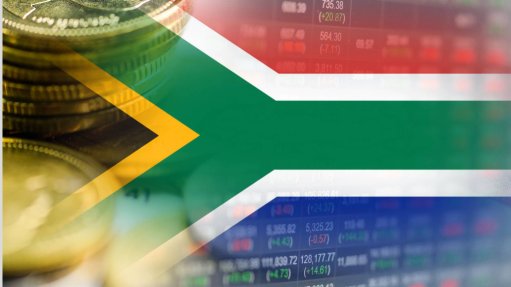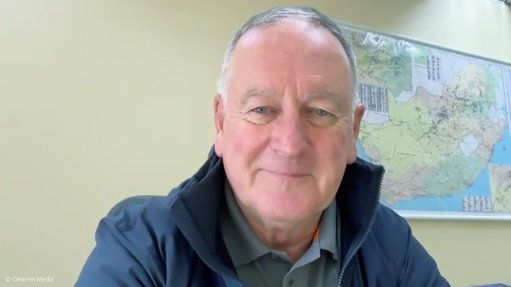South Africa rises in Kearney’s emerging markets rankings
South Africa rose to seventh position from eleventh in the emerging markets rankings section of Kearney’s Global Business Policy Council’s 2025 Foreign Direct Investment (FDI) Confidence Index, a survey of investor sentiment regarding future (three-year) FDI flows.
Investors said they resonated with three areas of improvement in the country’s landscape, which encouraged investment and underpinned its four-place rise in the rankings, Kearney Africa partner and lead Theo Sibiya said on April 8.
Firstly, progress was made over the past year and a half to improve the country’s power issues.
Sibiya lauded work undertaken by State-owned power utility Eskom, engendering an improvement from almost daily power interruptions to over 300 days with consistent supply. Moreover, improved stability allowed the entity to carry out maintenance on its coal-fired power generation fleet. The country’s renewable energy programme also added considerable capacity to the grid.
Sibiya pointed out that these initiatives bolstered investor confidence, and showcased the country’s ability to solve complex issues.
Secondly, survey respondents welcomed other infrastructure reforms, including unbundling of large State-owned entities, which is opening up space for the private sector to step in and play a role in resolving some of the logistics challenges.
Thirdly, investors highlighted green energy and sustainability, with multimegawatt renewable energy projects brought online, as well as considerable financial commitments to hydrogen energy projects. The long-term features of these projects was also noted as appealing to investors.
Sibiya also mentioned that the shift in the political landscape last year – where a Government of National Unity was formed following the African National Congress losing its majority for the first time since democracy – had more positive impacts than negatives on investor sentiment, despite its fragility.
He also noted that the South African market was now cultivating investment appetite from beyond the traditional countries, with interest from regions such as the Middle East.
South Africa has yearly mineral production of $124-billion, and natural resources were cited as the strongest draw for investors.
Sibiya said there is cognisance in the country of the opportunities presented by this, with notable actions on the ground to capitalise on these.
This includes the Department of Mineral Resources and Energy expediting the implementation of a cadastre system to streamline issuing of new mining licences; and reforms underway to address logistical issues and bottlenecks that have hampered exports of resources.
Sibiya also outlined another development that took place post the survey, that of sweeping tariffs imposed by the US on imports from foreign countries.
Several of the country’s resources, including the platinum group metals (PGMs), coal, gold, manganese and chrome have been specifically excluded from these; however, metal jewellery, granulated slag from the manufacturing of iron or steel, diamonds and iron-ore and concentrates will be subject to the tariffs.
Sibiya said the exemptions meant that the country was less impacted than it could have been, considering that some of these resources constituted a large portion of its exports to the US.
Last year, total South African exports of mineral products and precious metals to the US amounted to R65.3-billion, with PGMs accounting for 76.3% of the total.
2025 INDEX
The US maintained first spot in the world rankings section of the index, with 45% of investors citing technological innovation as the main factor for investment in the country.
Developed markets continued to dominate the rankings, accounting for 19 of the top 25 markets.
Canada retains its second position and remains one of the top five markets for the thirteenth year in a row.
The UK and Germany led the way in Europe, in third and fifth place, respectively.
In Asia, Japan’s performance improved, rising from seventh to fourth.
China dropped from third to sixth, likely owed to economic challenges, including trade uncertainties. However, investors are buoyed by the country’s technological innovation.
While only accounting for two markets in the top 15, the Middle East had significant representation, with the United Arab Emirates (UAE) and Saudi Arabia at ninth and thirteenth, respectively.
Despite concerns, the EU remained a top destination for investors, with more than two-thirds holding a favourable view of the region, and 60% in consensus that they prefer to do business here compared to anywhere else.
However, immigration challenges, economic stagnation and expansion of the conflict in Ukraine remained significant areas of concern.
Moreover, there are notable differences in perceptions of the EU across regions – Europe-based investors are generally more pessimistic about the EU’s position on the world stage compared to Americas and Asia Pacific counterparts in assessing issues related to competitiveness and economic and military power.
Emerging-market performance declined slightly relative to last year.
Only six emerging markets made the main index, down two from last year, as Poland and Argentina fall out of the top 25.
Overlap between the global rankings and the emerging market rankings include China at number one, followed by the UAE, Saudi Arabia, Brazil, India and Mexico.
South Africa, Poland and Argentina led the pack of emerging markets that fell just short of the main index.
Overall, the Americas boasted the most markets on the list with eight (down one from last year), followed by Asia Pacific at seven, the Middle East and Africa at five, and Europe also at five (up one from last year).
Two of the 25 emerging markets – Kuwait and Bulgaria – made the index for the first time.
Investors highlighted key risks in the 2025 index. “Investors were likely responding to a persistent rise in industrial policy when they pointed to restrictive regulatory environments as a top concern.
“As economies attempt to bolster not only their domestic industries and resilience, particularly in strategic sectors related to national security, foreign investment becomes more difficult,” report co-author Erik R Peterson explained.
About 38% of surveyed investors see a rise in commodity prices as the most likely development over the next year, up 12%.
Also, 35% of investors cite an increase in geopolitical tensions as a likely development this year, up 7%.
Ranked third is a more restrictive business regulatory environment in a developed market (32%), followed by a more restrictive business regulatory environment in an emerging market and political instability in a developed market (tied at 26%).
Across all markets, investors continued to highlight the importance of efficiency of legal and regulatory processes, domestic economic performance, and technology and innovation capabilities as the primary factors driving their investment decisions, Peterson pointed out.
Article Enquiry
Email Article
Save Article
Feedback
To advertise email advertising@creamermedia.co.za or click here
Press Office
Announcements
What's On
Subscribe to improve your user experience...
Option 1 (equivalent of R125 a month):
Receive a weekly copy of Creamer Media's Engineering News & Mining Weekly magazine
(print copy for those in South Africa and e-magazine for those outside of South Africa)
Receive daily email newsletters
Access to full search results
Access archive of magazine back copies
Access to Projects in Progress
Access to ONE Research Report of your choice in PDF format
Option 2 (equivalent of R375 a month):
All benefits from Option 1
PLUS
Access to Creamer Media's Research Channel Africa for ALL Research Reports, in PDF format, on various industrial and mining sectors
including Electricity; Water; Energy Transition; Hydrogen; Roads, Rail and Ports; Coal; Gold; Platinum; Battery Metals; etc.
Already a subscriber?
Forgotten your password?
Receive weekly copy of Creamer Media's Engineering News & Mining Weekly magazine (print copy for those in South Africa and e-magazine for those outside of South Africa)
➕
Recieve daily email newsletters
➕
Access to full search results
➕
Access archive of magazine back copies
➕
Access to Projects in Progress
➕
Access to ONE Research Report of your choice in PDF format
RESEARCH CHANNEL AFRICA
R4500 (equivalent of R375 a month)
SUBSCRIBEAll benefits from Option 1
➕
Access to Creamer Media's Research Channel Africa for ALL Research Reports on various industrial and mining sectors, in PDF format, including on:
Electricity
➕
Water
➕
Energy Transition
➕
Hydrogen
➕
Roads, Rail and Ports
➕
Coal
➕
Gold
➕
Platinum
➕
Battery Metals
➕
etc.
Receive all benefits from Option 1 or Option 2 delivered to numerous people at your company
➕
Multiple User names and Passwords for simultaneous log-ins
➕
Intranet integration access to all in your organisation


















